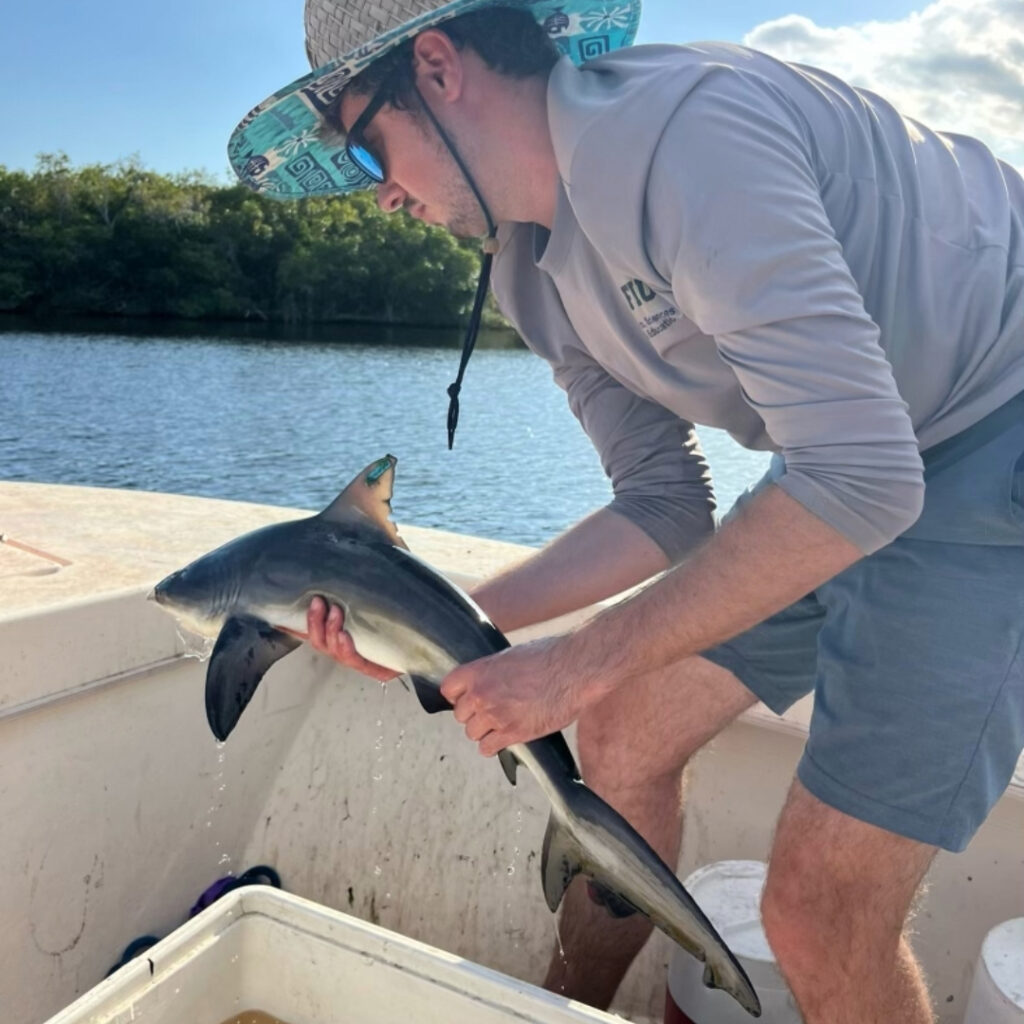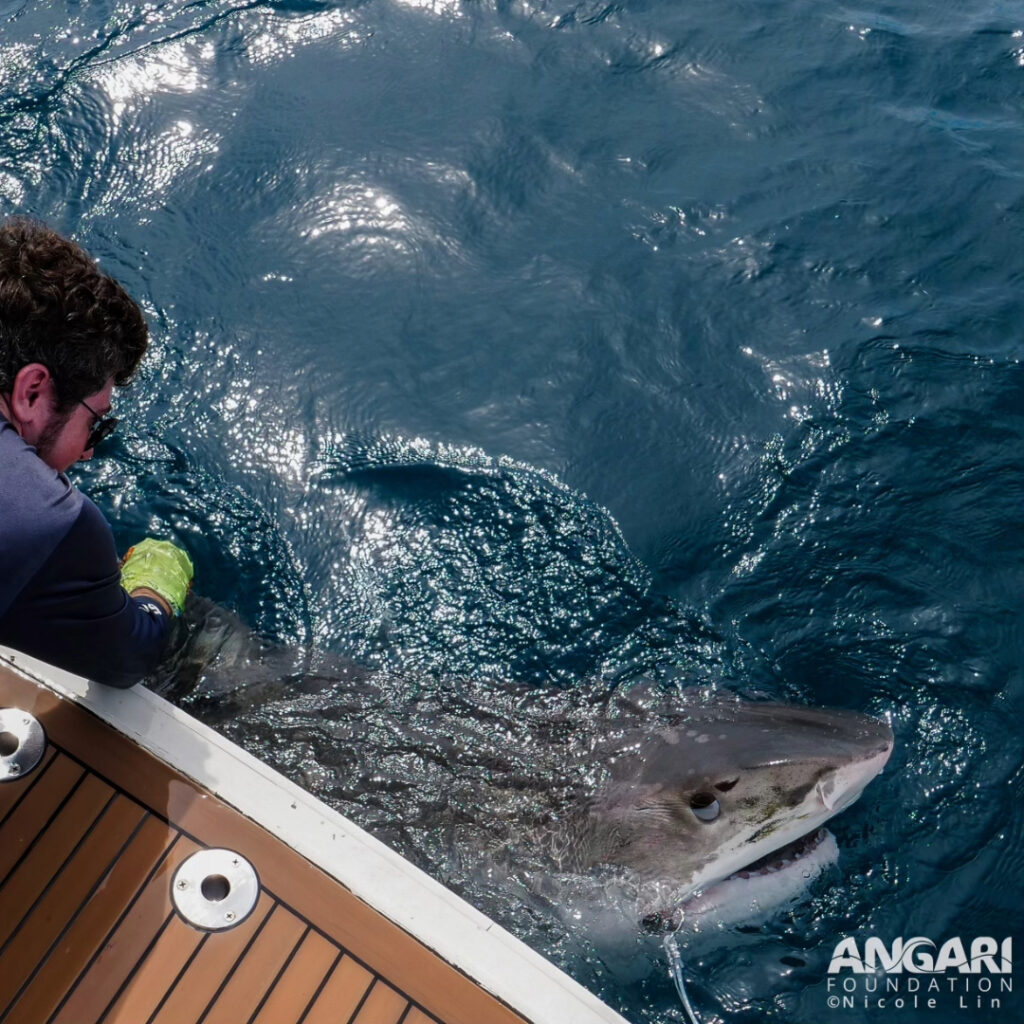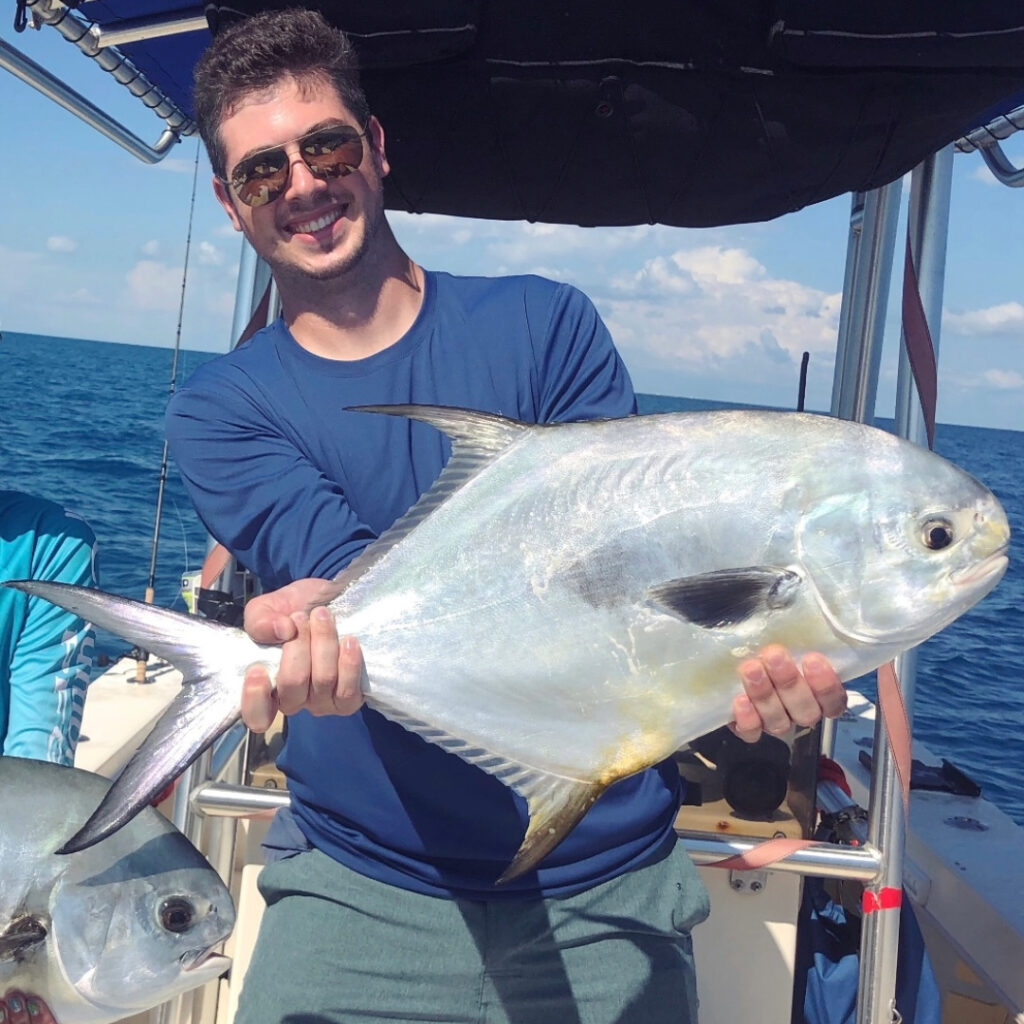William Sample is a PhD candidate in the Department of Biological Sciences at Florida International University. William was awarded the FSG/Guy Harvey Fellowship in 2024.

Releasing a recaptured juvenile bull shark in the Florida Everglades.
Sharks! Bull sharks. Not just a “load” of them but more than I could have ever collected the data for alone — over 600 individuals and counting. Clichés aside, as I move towards the process of writing papers and preparing my doctoral research for publication, I find myself thinking more about the collaborative nature of science and how we, as researchers, arrive at the questions we want to study.
When I first began my higher education years ago, I naïvely held the notion that all of the “good” research questions had already been answered in these modern times. Now, as I see my fellow early-career scientists begin to publish their research, my standpoint could not be more different.
With each new question we address, we gain the means to answer a dozen more! This is particularly true for work like mine, which incorporates long-term research collection with new big-data practices. As part of Dr. Mike Heithaus’ Lab at Florida International University, I study the movement of bull sharks in the Florida Coastal Everglades and add to almost 20 years of research on this shark nursery.

Securing a tiger shark during a student expedition aboard the R/V ANGARI. Image by Nicole Lin, Angari Foundation.
A nursery for sharks is much like you may imagine a nursery for humans; it’s a safe, protected area for the sharks to grow and mature until they are large enough to start exploring further out into the world. As an estuarine nursery affected by both tidal cycle and rainfall, the Everglades is a perfect place to study the ways environmental changes impact juvenile sharks daily, seasonally, and annually.
Over different timeframes and new insight, our research becomes more robust and builds upon itself with new questions. For example, after we learned that bull sharks are feeding differently in the wet and dry seasons in the Everglades, the question became, “Well, what exactly are the prey species they are eating, and where?”. After seeing that these juvenile sharks make different periodic movements up or downstream as they mature, we wondered “How might sharks be optimizing these movements with tides or currents to save energy?”. By building on the work of previous scientists and almost two decades of collected data, my doctoral dissertation aims to address these new questions about how different movement tactics might benefit sharks over timeand how movements may change from year-to-year.
However, the importance of cooperation in science goes beyond just large datasets or building on previous research. Even in the Everglades, one of the most invaluable things I have experienced is working with scientists in different disciplines that have diverse backgrounds and perspectives. Collaborations such as the Florida Coastal Everglades Long Term Ecological Research Network have given me opportunities to meet fellow researchers studying the same ecosystem with completely different approaches, including climate modeling, nutrient dynamics in algae, and invasive species distributions. By knowing what other projects are happening in the same areas, and having the resources to connect with those scientists, it has been incredibly helpful in thinking about how to approach my own research.

Catching a permit to assess spawning aggregations in the Florida Keys.
I am also a firm believer in extending collaboration to other projects from other universities and outreaching to local communities. At FIU, I’ve worked on many joint projects including a shark-permit depredation project in the Florida Keys, and a global assessment of shark and ray populations through video analyses.
Most recently I’ve helped lead a hands-on learning opportunity for K-12 students in Palm Beach County on marine science field methods and studying sharks firsthand. Stepping into a leadership role with this project in collaboration with the ANGARI Foundation has really allowed me to hone my skills in science communication and see immediate impacts of my work by inspiring local students with research happening right in their own communities!
These various opportunities have not only helped diversify my skillset as an early-career scientist, but also make new connections with colleagues in different areas of research than my own, sparking even more ideas for new questions.
It is truly essential to stand on the shoulders of giants in science and explore the next interesting questions even further. The most rewarding work I have done, and the foundations of my Ph.D. research, have been built by cooperative and compounding science that has allowed for new connections and novel questions. While at times it may just seem like just a load of bull (sharks), I truly believe that by approaching research this way, we will never run out of new and exciting questions to answer.